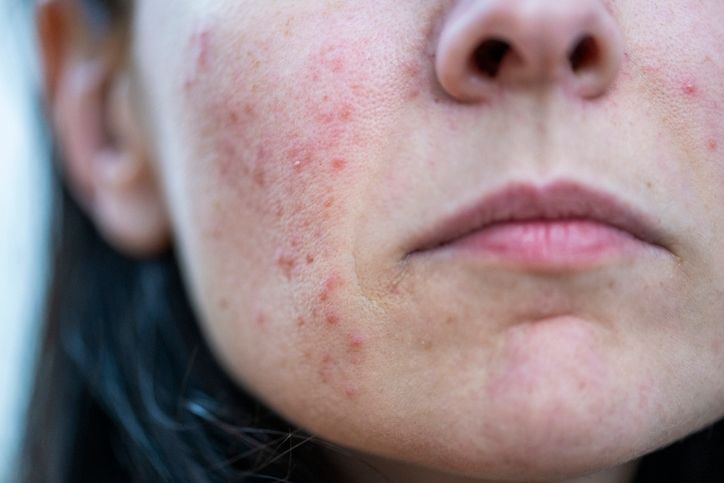

Date should not be before minimal date
Author: Leila Tan|Updated: 23 July 2024
Hair is a squamous, keratinized epithelium with many layers of flat cells that give the hair shaft its shape and strength. However, many people are not familiar with what their hair can do and how they can protect it better to inhibit hair growth. Let's talk about what you can do to make your hair grow faster and stronger.

1
Seriously...How Fast Does Hair Grow?
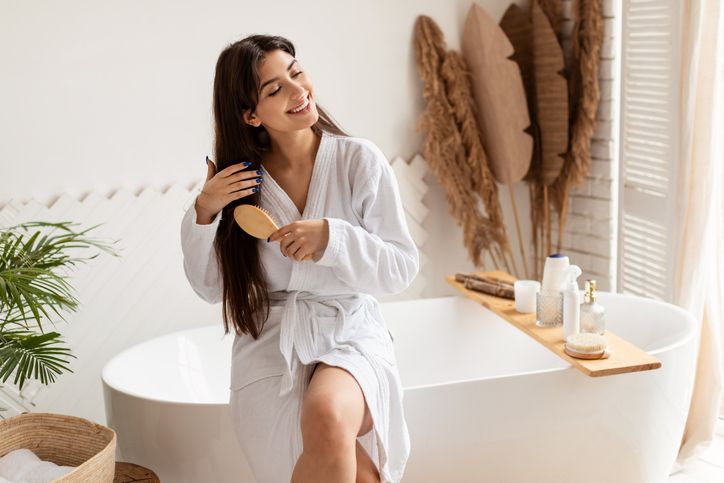
You can often find their existence on all parts of the body except the soles of the feet, lips, ears, backs, palms of the hands, outside of the genitalia, navels, scar tissue, and skin tissue. They grow about 0.5 inches (1.3 cm) per month or about 6 inches (15 cm) per year. But the rate at which hair grows can vary a lot from person to person based on age, genes, diet, and health in general. For example, hair tends to grow faster in people who are younger.
The average hair growth rate is about half an inch per month. This number may vary depending on the individual and hair type, although hair normally grows at the same rate for all persons. Though the precise reason for hair growth remains uncertain, several studies have revealed that hormones and genetics play a role in hair growth rate.
People's hair grows at varied rates depending on their nutrition and other lifestyle factors like stress, exercise, smoking, and alcohol intake. Certain vitamin and mineral deficiencies can also cause delayed hair growth. Maintaining a nutritious diet rich in protein, iron, zinc, biotin, and other elements essential for hair health is essential. Furthermore, regular exercise has been shown to promote circulation, which stimulates hair follicles and results in increased hair growth.
Age, in addition to nutrition and lifestyle factors, can influence hair growth rates. When compared to later stages of life, hair grows faster between the ages of 16 and 24. Hair growth slows dramatically after the age of 40 due to hormonal changes in the body as part of the ageing process. Hence, it's important to know the right cycle before tackling your hair loss issues.


2
The Cycle of Human Hair
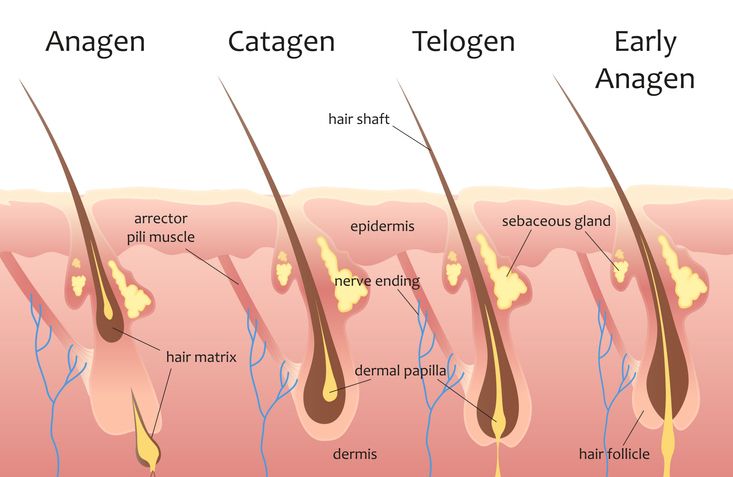
The hair growth cycle is a complex process that every human experiences. It consists of three distinct stages:
Anagen phase, Catagen phase, and Telogen phase
Anagen is the active hair growth phase. During this stage, hair follicles are producing hair at approximately one-half inch per month. As hair continues to grow in length, the hair follicle shrinks and eventually enters the catagen phase, which lasts for about two weeks. Catagen is a transitional stage in which hair stops growing and the hair follicle transitions from an actively producing hair to becoming dormant.
Finally, after two weeks in the catagen phase, hair follicles enter telogen, the resting stage of hair growth. In this stage, hairs are released from the follicles and shed out naturally into the environment as new hair starts to grow in its place from a nearby follicle. This process typically takes up to three months before another anagen cycle begins again.
During each individual cycle different parts of the scalp experience different stages of growth as hairs mature at different times or lengths overall producing a texture that appears seamless across our heads regardless of how many individual hairs are present. Without these distinct phases of growth, our scalps would be characterised by patchy areas or bald spots due to random shedding patterns or lack of an active anagen stage altogether.
Read More

3
What Can Affect Hair Growth?
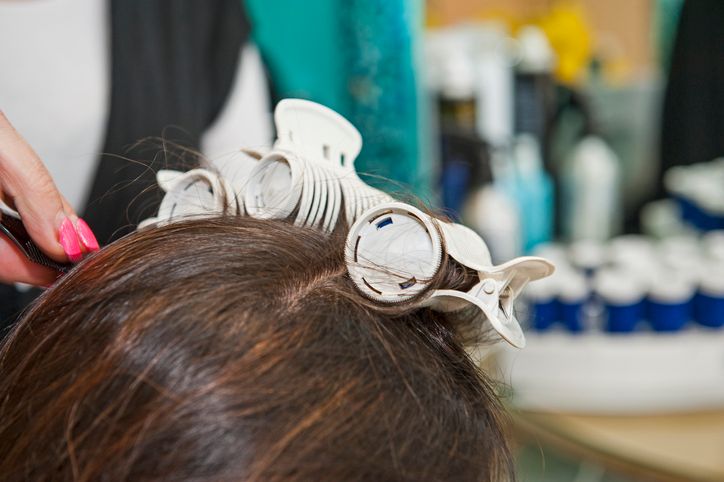
Diet, hormones, genetics, age, stress levels, and lifestyle choices are some of the main factors that affect hair growth, although they differ from person to person. A nutritious diet rich in proteins, iron, zinc, biotin, and other key vitamins and minerals is needed for good hair health. Hormones play an important part in hair development and can be influenced by factors such as pregnancy or menopause.
Genetics can also play a role in the rate of hair growth because some people are more prone to thinning or balding than others. Age is also a factor, as it has been discovered that hair grows faster between the ages of 16 and 24 when compared to later stages of life. Furthermore, stress has been associated with decreased hair growth rates, as well as lifestyle choices such as smoking or alcohol intake, which can contribute to damaged hair.
Individuals must maintain a balanced diet rich in vitamins and minerals, as well as engage in regular exercise to stimulate circulation and nourish damaged roots, in order to support healthier hair development. Those aiming to improve their general health and wellness should also reduce their stress levels through activities such as yoga or meditation. Finally, if any underlying medical concerns exist, individuals should always visit their doctor to identify the best course of action for managing their condition and fostering healthy hair growth rates.
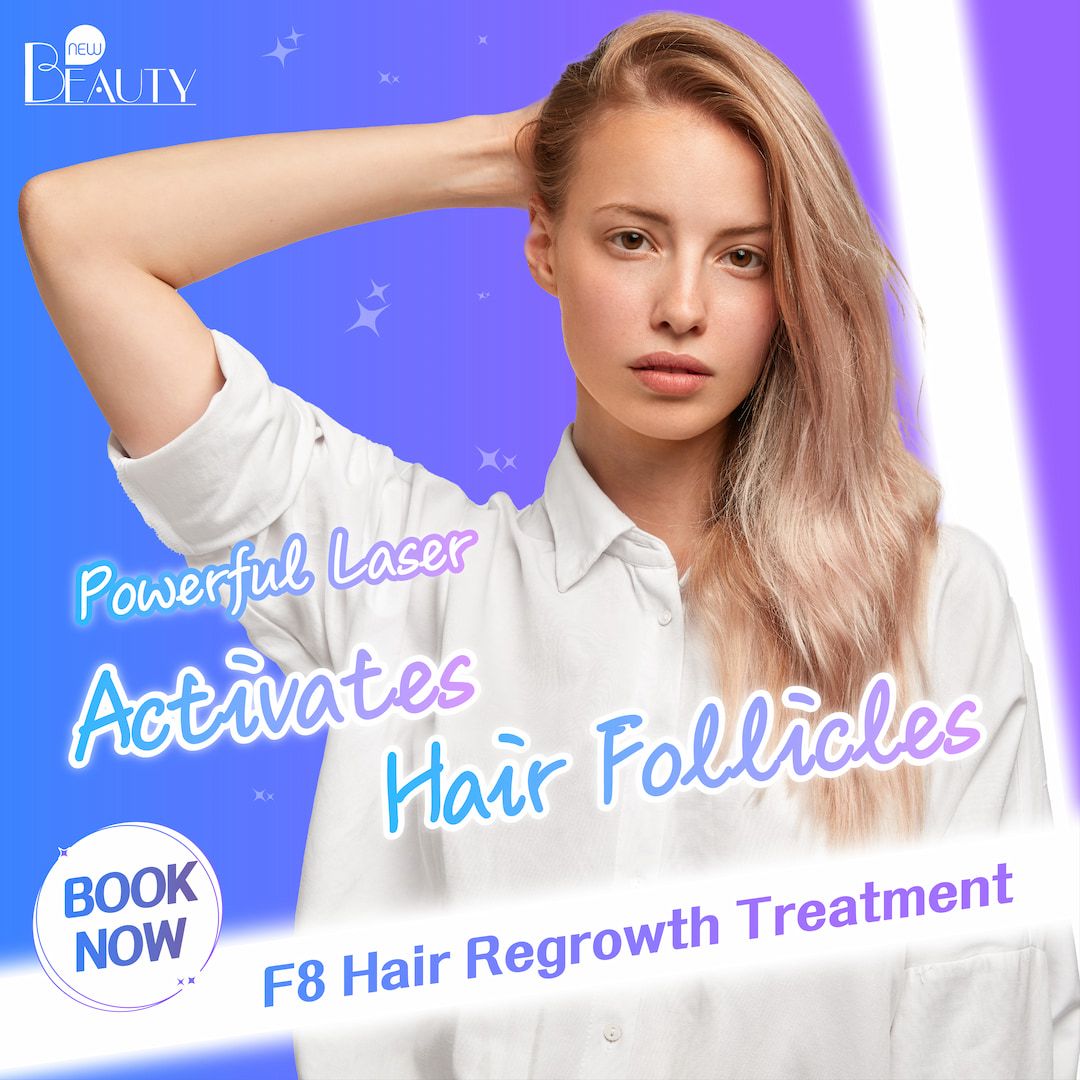

4
What Are The Usual Hair Loss Causes?
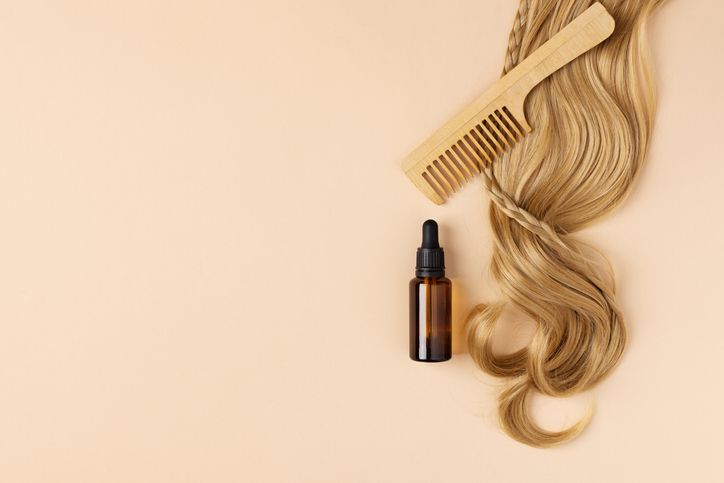
Hair loss can be caused by specific medical illnesses or treatments, such as chemotherapy or radiation therapy for cancer patients. In these circumstances, patients should discuss any concerns they have about hair loss with their doctor in order to establish the best course of action for treating their condition and enhancing overall health and wellbeing.
Another factor that arises in recent years is stress, combining chemical and environmental damage. Telogen effluvium is a temporary loss of hair that can be caused by stress. This can happen after a horrendous event.
On the other hand, your hair can grow faster on one side of your head than on the other. Each hair follicle has its own blood supply, and blood flow may be better on one side of the head than the other. When blood flow is better, hair grows more quickly. If you always sleep on the same side of your head, that side may also grow slower.
By cutting off damaged hair, which can cause hair to break off and look shorter, regular haircuts should help your hair grow faster. If you go to the salon often, you might also want to stop dying your hair, since it can be bad for your hair and make it grow slowly or break.

Date should not be before minimal date

5
How can I grow my hair faster and stronger?
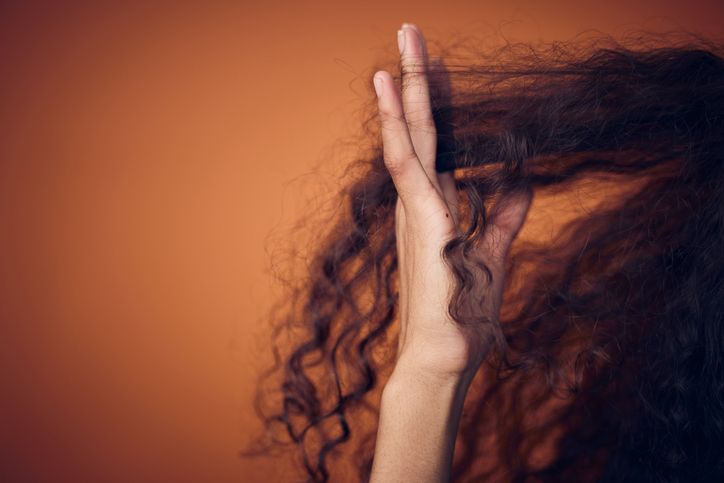
For healthy hair growth, proper nutrition is essential as it provides essential proteins and vitamins that promote healthy hair development while helping to prevent breakage during styling or brushing habits over time.
Furthermore, proper hydration helps keep scalp skin healthy by providing it with moisture and protecting against overly dry conditions that can lead to brittle hairs more prone to breakage during grooming practices such as combing and hairstyling with heat tools like flat irons or curling irons. Here are some tested and trusted methods for hair growth that you might want to consider.
Using Minoxidil
Minoxidil is a topical medicine that has been demonstrated to help slow hair loss and, in some cases, even accelerate the growth of healthy new hair. Minoxidil can be applied directly to your scalp in either liquid or foam form, according on your preference. It is a simple treatment that is available without a prescription and is typically the first drug that men seek out when they notice that their hair is not as thick or full as it once was.
Minoxidil, like other hair loss treatments, has an almost immediate effect on your body. Minoxidil, on the other hand, generally takes a few months to demonstrate its results, which include a reduction in hair loss and a return to normal hair growth.
Although the exact time required to see improvements with minoxidil varies from person to person, the vast majority of users notice changes after two to four months of daily treatment.
Eat the right foods to make your hair grow faster
As protein is the main component of hair, eating a protein-rich diet is essential for healthy hair. Dry, brittle, and fragile hair is a sign that your diet lacks sufficient protein. A lack of protein in the diet has been linked to slow hair development or even hair loss. Protein-rich foods include those you eat, such as poultry, turkey, fish, dairy products, eggs, and legumes/nuts.
A deficiency in iron is a leading cause of hair loss. A nutrient-rich blood stream carries oxygen and nutrients to the hair follicle and root. When serum ferritin levels drop below a certain point, anaemia may set in. The hair growth cycle is disrupted and hair loss may result from the follicle not receiving enough nutrients. Iron is readily absorbed by the body through animal products including red meat, poultry, and fish because of their high bioavailability. Vegetarians can obtain more iron through eating lentils, spinach, and other dark green vegetables like broccoli, kale, and salad greens.
In order to maximise iron absorption, it is recommended to consume vitamin C-rich foods alongside iron-rich diets. Vitamin C is easily absorbed by the body due to its antioxidant effects. Fruits and vegetables like blackcurrants, blueberries, broccoli, guava, kiwis are great food choices. Vitamin C aids in the production of collagen, which fortifies the blood vessels that nourish the hair shaft.
Next, vitamin A is essential for the production of sebum in the body. Sebum, an oily material secreted by our sebaceous glands, is a natural conditioner for our scalp. Itchy, flaky scalp and a lack of oil in the hair could be the outcome. Meat and vegetables rich in beta-carotene (which is converted into vitamin A) such as carrots, pumpkins, and sweet potatoes should be prioritised in your diet.
Apply essential oils for healthy scalp
Essential oils come from plants and herbs and are pure, concentrated extracts that have been used for thousands of years by people all over the world. They use extracts from plants to help people feel better and stay healthy.
Besides that, essential oils are made through a process called distillation. In this process, steam is used to turn a plant compound into a gas, which is then cooled and collected. The result is essential oils, which are the liquid "essence" of the plant compound.
Many essential oils have been shown to be good for hair and scalp health. Essential oils are powerful solutions for a wide range of scalp and hair problems. They can make new hair grow, fight scalp problems like dandruff, and make straight hair, colour treated hair and even other hair types smoother and shiner.
Give Hair Regrowth Treatment a Try
Low-level laser therapy for hair loss has been getting a lot of attention lately. There are a lot of claims that it can do amazing things. It can stop hair from falling out. Help you regrow hair. That it makes your hair thicker and a lot healthier.
This treatment is a new way to stop hair loss without surgery. It uses laser light to speed up cell growth and give hair follicles a boost. It helps stop hair loss and makes hair fuller and better looking. The treatment doesn't hurt and has no known side effects. It is mostly used to treat androgenetic alopecia, which is also known as male or female pattern baldness.
Androgenetic alopecia is the most common cause of hair loss in both men and women. It is an inherited condition that causes hair follicles to shrink and become dormant. This type of treatment can also be used to treat other types of alopecia and hair loss, such as hair loss caused by chemotherapy or hair loss in women that is very severe after pregnancy or menopause. In the short term, the results of low-level laser therapy have been shown to be even better than those of medicines.
A very effective hair restoration treatment that doesn't involve surgery or drugs sounds like a great choice, but you might wonder if it's too good to be true. It's not always easy to tell what's real and what's just hype. Thankfully, there is New Beauty's F8 Hair Regrowth Treatment to get you on the right track for fast hair growth.


6
Keep Your Hair Healthy & Thick with New Beauty's F8 Hair Regrowth Treatment
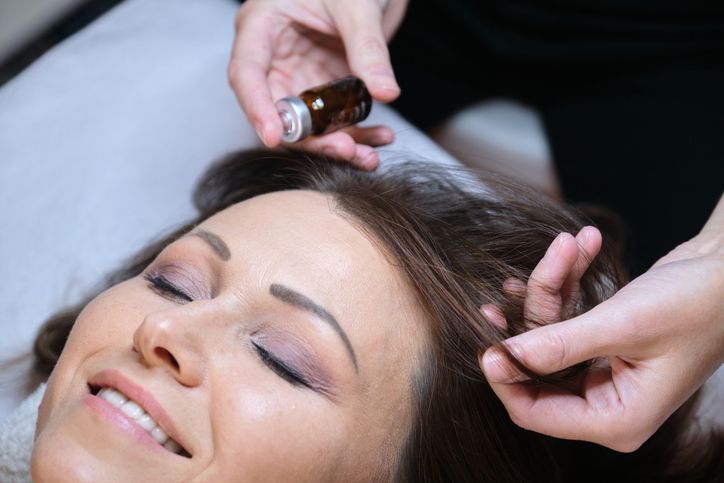
F8 Hair Regrowth Treatment is a non-invasive therapy that promotes hair growth and keeps the scalp healthy. A hair development serum with low laser energy sweeps across the scalp, stimulating inactive hair follicles and strengthening the hair papilla from within. The energy and serum also heal the capillaries and promote microcirculation, which aids in the supply of nutrients to the hair follicles. You will notice enhanced hair growth, stronger hair strands, and less hair loss after the therapy.
The F8 low-energy laser can help to strengthen hair follicles, papillae, and capillaries. It is also a very safe hair and scalp treatment for both men and women who have hair and scalp issues like hair loss, thinning hair, oily scalp, sensitive scalp, receding hairline, balding crown, alopecia areata, scalp inflammation, male pattern hair loss, female pattern hair loss, post pregnancy hair loss, and more.
If you are facing irritating hair fall issues or just want fast hair growth, comb over to try the treatment today and witness the changes yourself!
FAQ
Is nutrient deficiency bad for hair?
The body needs the right amount of all the essential nutrients. The system can be thrown off by a lack in any area. When this happens, the body moves resources around to make sure it can keep going. If the body doesn't have enough iron, which is needed for oxygen to be carried by red blood cells, it can affect the scalp and hair follicles. In milder cases of iron deficiency, there may be no signs, and people who have it may ignore signs like being tired, cold, anxious, or short of breath. Some people notice hair loss, nails that break easily, or twitchy legs.
Is it true that hair gets different every 7 years?
The average lifespan of a single hair is between 2 and 7 years. The hair then falls out, and a new one grows in its place. Your genes also decide how much hair you have on your head and body. About 100 hair shafts fall out every day, so hair follicles are always in different stages of the hair cycle. Also, different parts of the scalp age at different rates. So, it's true that your hair always changes, but the 7 year cycle affects less and less of your head as you get older.
Does damaged hair still grow?
Luckily, in the vast majority of cases, damaged hair can grow out over time as long as the follicle is still there. So, damaged hair can still grow, but doing it over and over again can hurt your hair.
Is the treatment invasive?
Since F8 Hair Regrowth Treatment is painless, it does not leave a wound. The low-energy laser increases blood circulation without harming the skin.
What should I do following the treatment?
Consume enough water to boost metabolism and blood flow. Avoid rubbing, scraping, or exfoliating the skin on your scalp. You may shampoo your hair as usual. However, severe water temperatures should be avoided.

Date should not be before minimal date
Recommended Articles
COPYRIGHT© NEW BEAUTY MANAGEMENT LIMITED 2026. ALL RIGHT RESERVED.

